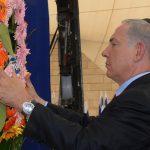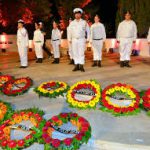In advance of Tisha B’Av, the most somber day of the Jewish year, we consider the well-known position of the Conservative/Masorti movement declaring it permissible to end one’s fast on that day following the minḥah (afternoon) service. By ” minḥah” is meant minḥah g’dolah, the earliest time the service may be prayed. (The time for minḥah g’dolah in Jerusalem this year on Tisha B’Av – August 1, 2017 – begins at 1:19 pm.) The position is set forth in a t’shuvah of the Vaad Halakhah, or Law Committee, of the Israel branch of the Rabbinical Assembly (RA). The opinion, which expresses the Committee’s majority view, was authored by Rabbi Tuvia Friedman; Rabbi David Golinkin dissents, arguing that the full-day fast be maintained. (See here, in Volume One of the Vaad’s t’shuvot, for English summaries.) While the majority bases its argument upon a number of different considerations, we want to look here at the central part of its halakhic argument, found in section 4 of the responsum, “The Talmud and Its Commentators on Tisha B’Av.” Continue reading Tisha B’Av: A Partial Fast?
Monthly Archives: July 2017
Who Defines “Authenticity”?
With the possible exception of Yom Kippur, no date in Israel’s national calendar is more solemn than Yom Hazikaron, the day of memorial for those who have perished in defense of the state since its founding. Like all national memorial days, its observance is marked by ceremonies and rituals that unite the citizens in mourning for the fallen. The most dramatic of these is the sounding of a siren throughout the land for a duration of one minute in the evening and two minutes in the morning, a signal that summons the entire population to stop whatever they are doing to stand in silent tribute and reflection. That drama, unfortunately, does not impress everybody. For example, there are ḥaredim who have never reconciled with the creation of the Jewish state. They refuse to participate in its national observances, and some of them pointedly do not stand in silence and do not interrupt their activities when the siren sounds. Continue reading Who Defines “Authenticity”?

